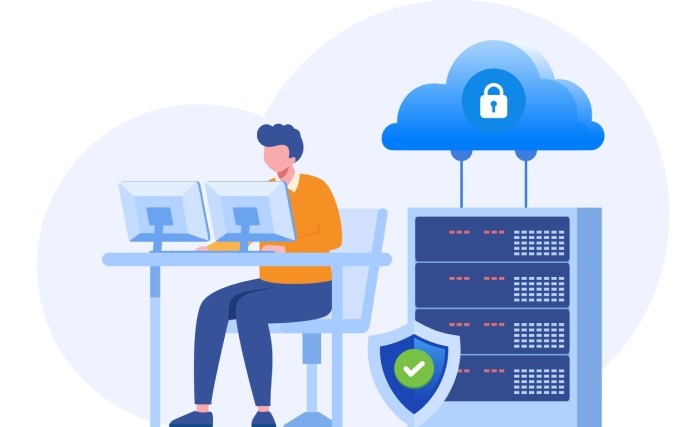It’s difficult to try and quantify how COVID-19 has impacted business. New ways of doing business, like work from home (WFH), have emerged to affect every aspect of daily business life. COVID-19 and WFH combined have had a ripple effect on other aspects of business like bring-you-own-device (BYOD) and the adoption of cloud services as a standard part of business. And through all these recent changes, one thing is clear: people still use email predominantly to communicate with each other.
What makes email usage possible is email hosting, or SMTP hosting. COVID-19 will have a major impact on that too. According to research conducted by Technavio titled Global Email Hosting Services Market 2020-2024, “the global email hosting services market is expected to grow by USD 25.70 billion during 2020-2024.” And some of that growth is directly attributable to COVID-19.
From the research, “The outbreak of COVID-19 globally is expected to have a positive impact on the growth of the email hosting services market during the forecast period. The demand for email hosting services will further increase due to the extension of lockdown and containment efforts across the world.”
More lockdown means more email. Co-workers who you used to be able to talk to in person at the office, now require email to communicate with. But the quantity of email isn’t COVID-19s only impact to SMTP hosting.
It shouldn’t come as a surprise that as the world has responded to COVID-19, so too have hackers. At every turn, bad actors have looked to the changes resulting from COVID-19 to launch attacks and exploits. And SMTP hosting has not escaped unscathed.
In response to the increased attacks, the Messaging, Malware, & Mobile Abuse Working Group (M3AAWG), an industry group aligned to defeat malware, spam and viruses, has asked the email hosting industry “to take further steps to authenticate and secure their sending domains and email addresses by deploying email authentication at scale and at enforcement.”
The M3AAWG strongly encourages email hosts to adhere to the following email authentication parameters when publishing and signing their various records:
- Publishing SPF records with at least ~all, or -all if the domain does not send email
- Signing all mail with aligned DKIM
- Publishing DMARC policies for organizational domains — even non-sending ones — at enforcement: using at least p=quarantine, although p=reject is preferable, across the entire domain and all subdomains without exception
The result of COVID-19 is clear: more email, more attacks, more protection. If you’re moving to hosted SMTP, or you need to change to a hosting provider that can meet the authentication demands of COVID-19, you need to know about DuoCircle.
DuoCircle delivers reliable Outbound SMTP you can trust. DuoCircle uses SPF, DKIM and DMARC, per M3AAWG guidelines, to automate the signing of your outbound email and ensure the emails reach the inbox every time. DuoCircle has email servers worldwide in major geographic zones including USA and Europe. DuoCircle comes with exclusive outbreak protection. If your computer ever becomes compromised, DuoCircle helps you preserve your IP reputation.
Try DuoCircle risk free for 30 days. It sets up in minutes and comes with the best 24/7 customer support around.


